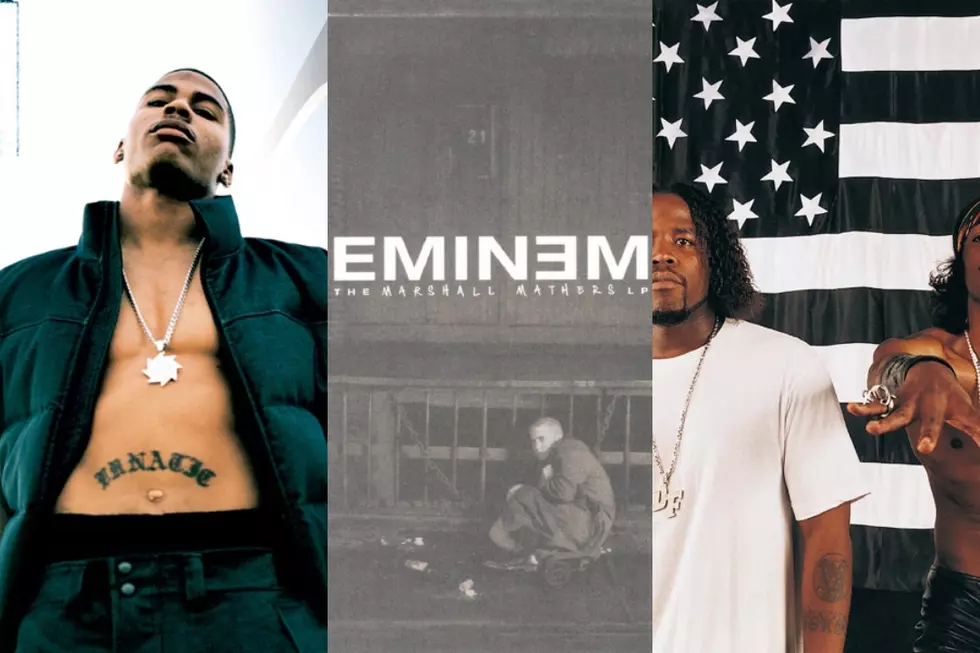
Boosie Badazz Offers Narrative Depth And Embraces Contradictions On ‘Life After Deathrow’ Mixtape
The allure of Lil Boosie is no longer a hyperlocality confined to the Southeast. Torrence Hatch became Baton Rouge royalty by delivering bounce hits and street narratives in the same emotive, bluesy rasp; he became transcendent upon his release from Louisiana State Penitentiary, where he was held for five years and faced a first-degree murder charge. More than six months removed from his time in Angola, Boosie (now Boosie Badazz) finds both his perspective and following far broader than it was during his last official release in 2010. Life After Deathrow serves as redemption and reintroduction for the man that went from “a million dollar home to a cell 8 x 4.”
But by no means is Life After Deathrow the brash announcement that Boosie is back in your speakers, nor does it neatly fall into the post-prison changed man trope. The project is dense, contemplative and embraces its contradictions. Confessions are tightly packed throughout, and aside from a three-track lull toward the end of the tape, Life After Deathrow moves with the pace of an artist desperate to get the story straight.
Life After Deathrow begins with four of Boosie’s most transparent efforts of his career. “Murder Was The Case” finds him candidly airing the details of being connected to killings by freelance hitman “Marlo Mike” Louding, hearing his lyrics used in his prosecution and suffering abuse from racist COs. Creeping bass lays over an iconic Snoop sample to establish an urgency and restlessness that persists throughout the first quartile: The haunting, restrained wails of “I’m Comin’ Home” are as vengeful as they are forlorn, while “I Feel Ya” has Boosie resuming his position as a low-end common man, empathizing about recidivism and addiction with a jailed pulpit.
Meditation isn’t restricted to the expected formula of wallowing keys and anthemic hooks, though, and Boosie succeeds in keeping his bona fides fluid. The buoyant, sparse snaps of “I’m Wit Ya” recall early Cash Money radio hits, but Boosie’s subversive flow snakes and slows to share stories of a protagonist with a price on his head, a single mother with a gambling addiction and a 14-year-old girl with gonorrhea too shamed to see a doctor. The thundering bass, chopping 808s and blaring whistles of “Here We Go Again” seem fit for an LSU tailgate, but Boosie flips it for dour verses about a tense racial climate in Baton Rouge and “the dirty system that tried to put the needle in [him.]” And the mixtape’s fulcrum, “The Fall,” is backed by a beat that could easily serve a slow-burning trap track, but Boosie pounds his chest as he chants, “Boosie back from the dead, no hunting me / You know what they say about me and my clique / We don’t belong on this planet, goddamnit, that’s some cold shit!”
As expected, Life After Deathrow isn’t all about imparting wisdom and dissecting relationships. Boosie spent half a decade locked up, and his return brings champagne toasts (“Life I Dreamed Of”), nights at the club (the Yo Gotti-assisted “Cruisin,” which uses a minimalist piano riff similar to “Wipe Me Down”), and a lot of women (“Facetime,” “Grade A” and “Boosie Love” come in succession). There are a few arresting moments — He and the bubbling Shy Glizzy let AKs sing on the hook of “Young Niggas” — but Boosie’s squawks are undeniably enjoyable, and if anything, the select instances of gun talk only strengthen the overarching theme of, as he notes in the intro, “taking a lifestyle and delivering it in pain.” Boosie’s still the people’s rapper, and almost every track on Life After Deathrow simultaneously offers loose sentiments of indignation, helplessness and triumph.
That’s especially the case on the hymnal “O Lord,” the mixtape’s best and last song. An opus that spans nearly six minutes, Boosie brags about having the baddest bitches, gets nostalgic for a childhood with cornbread and “Sweet Sadie,” and cries in the courtroom before embracing his newfound freedom. Life After Deathrow succeeds in being both emotionally honest and openly contradictory, and the bevy of vignettes and unique characters introduced make it an especially dense listen despite a fair amount of club songs.
On the heals of his studio LP, Touchdown 2 Cause Hell, Boosie justifies the recent hype and injects the lessons learned from a highly-publicized prison stint into an already-proven formula. Life after death row is looking good indeed.—Steven Goldstein
More From XXL









